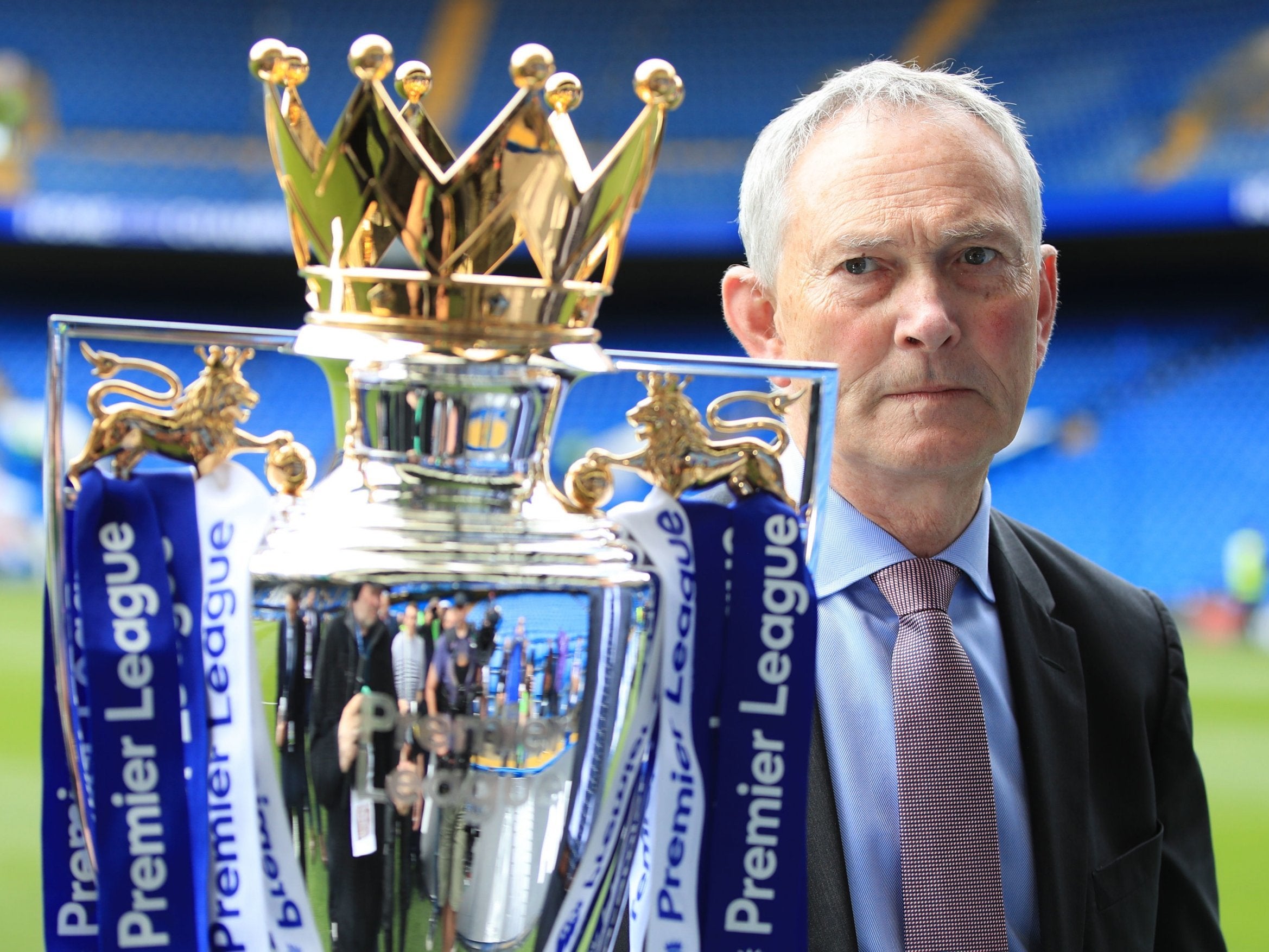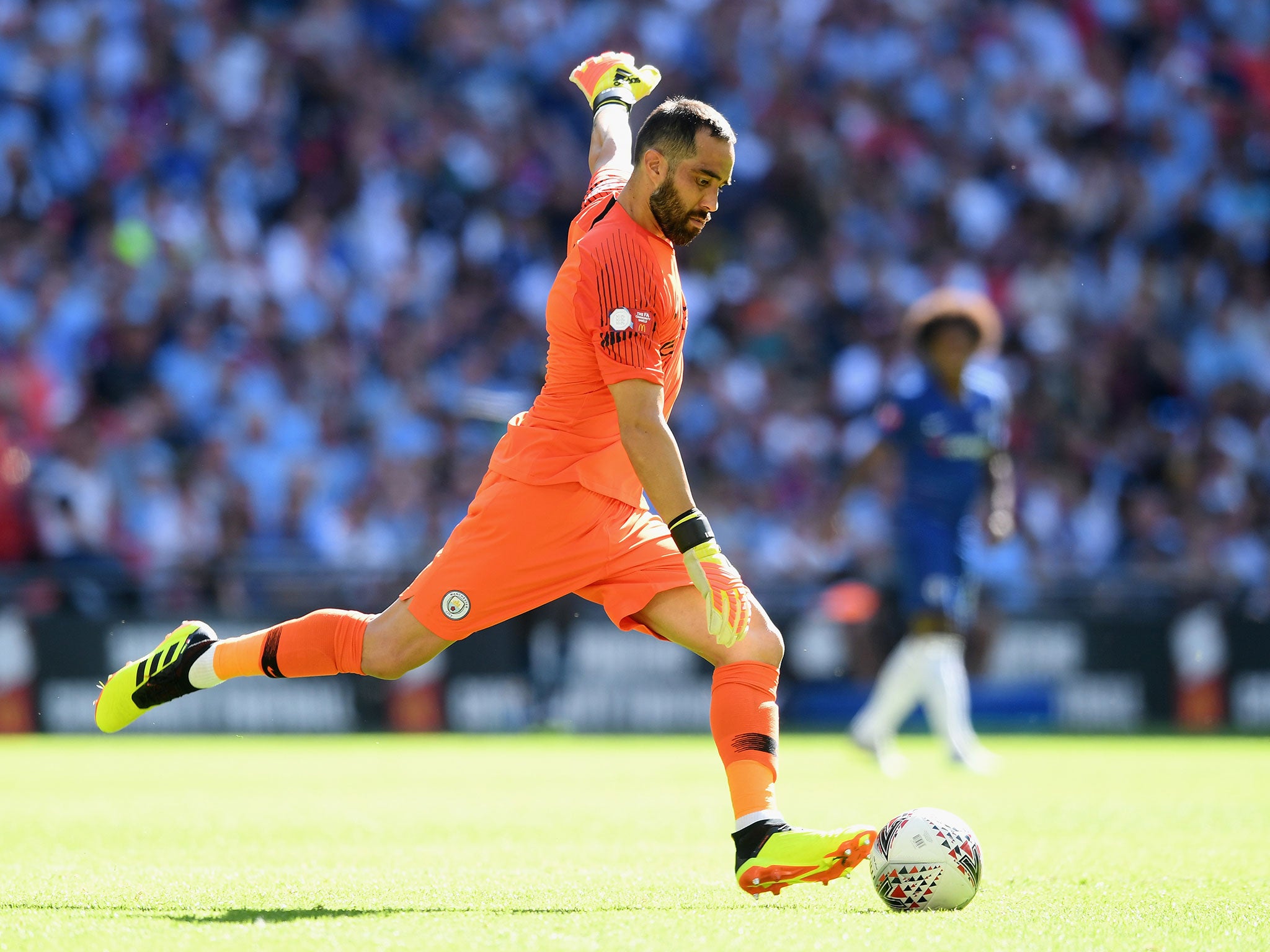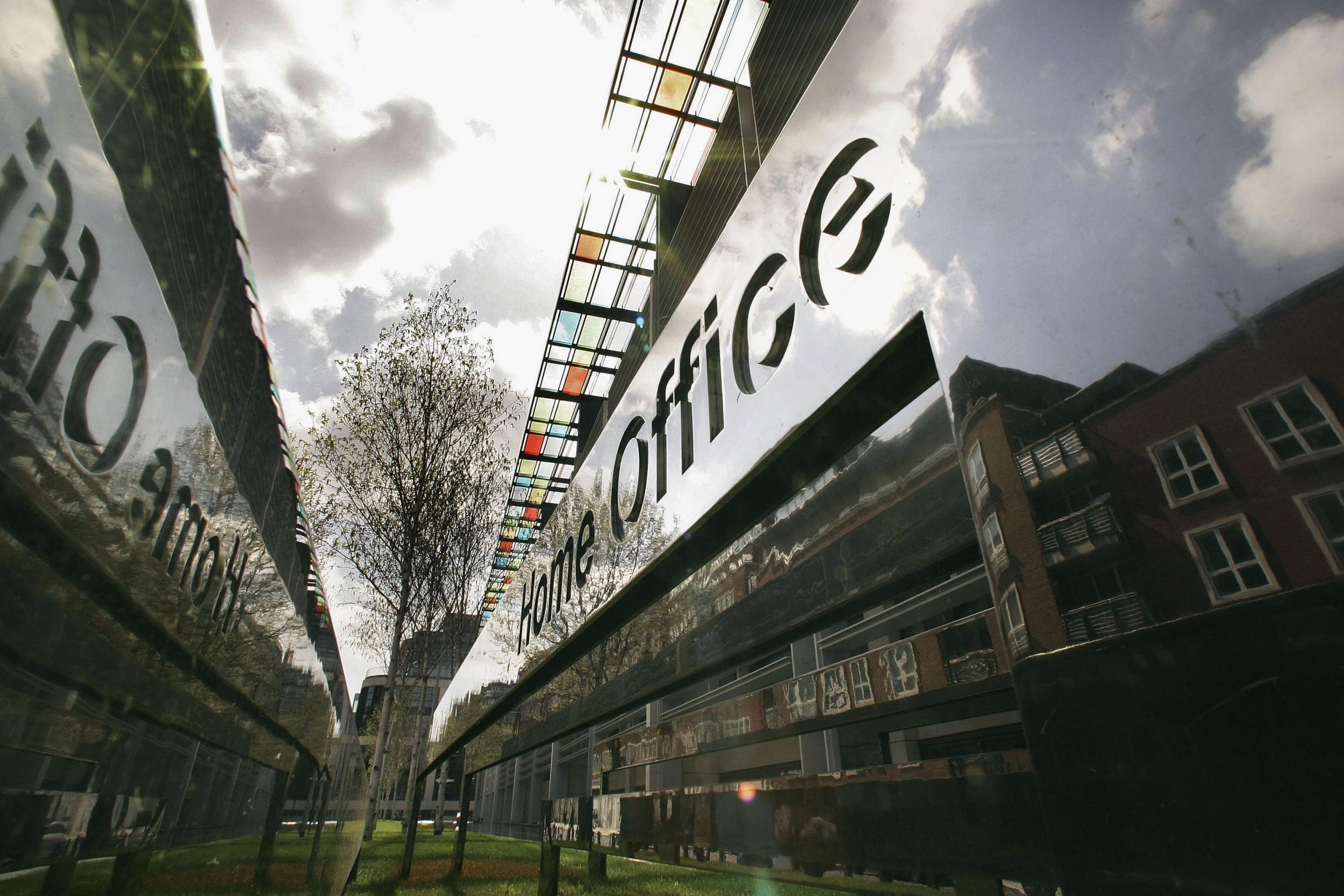Can the Premier League beat Brexit?
This is about power in English football, and the Premier League, having accrued so much of it for so long, simply does not want to be told what to do when it comes to free movement of players, says Jack Pitt-Brooke


Richard Scudamore saw the crunch coming from miles off. Three days before the Brexit referendum, back in June 2016, the Premier League chief executive warned that a win for Leave would be utterly at odds with his competition and what it stands for.
“We travel the world being welcomed because of the fact that we are open for business, open for discussion, and open for cooperation,” Scudamore said. “There is an openness about the Premier League, which I think would be completely incongruous if we were to take the opposite position.”
But later that week 17.4m of the British electorate did take the opposite position. And two and a half years on, that incongruity Scudamore warned of is about to crash straight into the Premier League.
Whatever happens with Brexit over the next four months, and beyond that, English football will never be the same again. How could it be, when it is our most important cultural reference, a unifying force in a divided country, both a reflection of our politics and a political force in itself. Football grows out of national life like a plant growing out of shared soil. This political moment is transforming that soil and with it the game and its institutions will change too.
Because it is impossible to imagine the rise of the Premier League without the favourable political climate it found in the UK in the 1990s and 2000s. Steady economic growth, low regulation, improving infrastructure, and with a consumer base of a country falling in love with the game all over again after Italia 90. There can hardly have been a better time or place to launch a project like the Premier League than here, back then.
Soon enough the Premier League became associated with a certain tone in British public life, which pervaded the governments of Tony Blair and David Cameron: successful, modern, profitable, comfortable with globalisation and cosmopolitanism, attractive to foreign expertise but confident in spreading its own message across the world, and, in Peter Mandelson’s famous phrase, intensely relaxed about people getting filthily rich.
What it all boils down to, in Scuadmore’s word, was “openness”. Open to foreign money, as Russian and Emirati billions transformed Chelsea and Manchester City, with the super-rich of China, Thailand and the US jumping in too. Open to foreign ideas, as Arsene Wenger, Jose Mourinho and Pep Guardiola arrived to raise the bar at the top end of the game. And, most importantly of all, open to foreign players, who Premier League clubs quickly realised were better and cheaper than the players produced at home. At first Eric Cantona, Gianfranco Zola and Dennis Bergkamp were the brilliant exceptions on the teams they played for. But now the least interesting thing about Kevin De Bruyne or Mohamed Salah or Paul Pogba is their nationality. That is why just 30 per cent of Premier League appearances are now made by England-qualified players, a figure that drops to 21 per cent among the league’s top six. And why the league, a product of very English conditions, feels to some as if it is English only in the sense that it takes place here.
That globalised Premier League has often felt permanent, but it was built on political foundations, the basis of which was the free movement of people into the UK. And in 2016 the British electorate took a look at the openness Scudamore celebrated, and decided to close it up instead.
Nearly three years on, this is where the Football Association comes in. It is its job to oversee how the government grants visas to footballers coming to the country from outside the EU. Once freedom of movement ends, it will have a far bigger job, because far more footballers will need visas in order to play here. The FA will need a new approach.

But the FA also has an interest here, in the success of England’s national teams. It has to both referee the running of the game and fight its teams’ corner at the same time. For years they have had to watch as the steady flow of foreign players has slowly squeezed down the opportunities for England-qualified players. And, in a long spell of underachievement from the England national team, “too many foreigners” was the easiest explanation available.
This picture has slightly changed now. Last year England teams won the Under-17 and Under-20 World Cups, as well as the European Under-19 Championship. This summer, of course, Gareth Southgate’s England team reached the semi-finals of the World Cup in Russia, and were 22 minutes away from a final against France. Next June they will go to the Uefa Nations League final four in Porto, and it would be no surprise if they won it. It is now very difficult to make the case that young English players are not as technically good as their counterparts.
Even after these recent successes, the FA still wants open, clearer pathways for the young England-qualified players in the Premier League system. There are good recent examples of English players brave enough to seize an opportunity for themselves. Like Nathaniel Chalobah leaving Chelsea to go to Watford, or Jadon Sancho leaving Manchester City to sign for Borussia Dortmund. But these are the exceptions rather than the rule.
There is another way that Brexit will inhibit the Premier League, stopping it from doing what has made it so strong. Leaving the EU would stop Premier League teams from signing 16- and 17-year-olds from other international associations, which they are only allowed to do right now thanks to the EU’s exemption to Fifa’s Article 19. Cesc Fabregas, Paul Pogba and Hector Bellerin all came here as soon as they legally could, but those days will soon be over.
The FA hopes to use this as an opportunity to gently tip the scales of Premier League football back in its favour. Under current rules, each Premier League club is allowed to register up to 17 non-homegrown players in their 25-man squad. The remaining eight must have learned the game in this country. In theory, there would be 340 non-homegrown players if all 20 Premier League teams took up their full allocation, and most of the big teams do indeed take up all of their spots. When Chelsea and Arsenal first started fielding teams with no English players at all it was a minor scandal, now it is no story at all. But not every team works like this and so the current number of non-homegrown players distributed unevenly through the Premier League is 262. And the FA has decided to draw a line in the sand.
Under their new proposal, each Premier League team would be limited to 13 non-homegrown players, instead of 17; 13 lots of 20 is 260 after all, so the FA can say it is no change at all. And they can argue that no team would lose too much by sacrificing their 14th, 15th, 16th and 17th most-important non-homegrown players. Tottenham Hotspur, for example, would have lost a total of two starts and two substitute appearances from Paolo Gazzaniga, Michel Vorm, Georges Kevin N’Koudou and Vincent Janssen had this rule been in place last season. Not exactly the cream of imported foreign talent.

The FA does not wish to be associated too strongly with the politics of Brexit, and has argued that it would be pursuing this policy change even if Brexit were somehow to be stopped. It has even offered another liberalising measure in order to sweeten this pill. The FA currently administers the Governing Body Endorsement (GBE) scheme, by which visas for footballers from outside the EEA are granted on the basis of measurable criteria such as transfer fee, salary, international experience and Fifa ranking of their national team. And the FA is willing to abandon all of that, and to give a visa to any foreigner in future, no matter his age or nationality, if the Premier League will just meet it on numbers. But there is no imminent prospect of that.
The Premier League clubs discussed the FA’s plan at their shareholders’ meeting last month. And what emerged was a clear rejection of the FA’s plan, in a strongly worded statement which also spoke for the EFL and the Scottish Professional Football League, all the major employers in British football. They almost accused the FA of opportunism, of exploiting the political moment to undermine their leagues. The statement said that, like the Premier League, the EFL and SPFL were united in their view that “Brexit should not be used to weaken playing squads in British football, nor to harm clubs’ ability to sign international players”.
Most of the data I have seen suggests quotas on squads would not make a difference. The key focus in the group I sat on was more around the last part of youth development, 17 to 21. That is what most clubs feel we need to review
Their first point is on the merits of the FA’s plan. The Premier League has seen studies showing that tightening foreign player quotas does not necessarily strengthen national teams. They can point to the successes of England teams at all levels over the last two years, and ask how can the FA claim this is a problem when they appear to have solved it themselves? The Premier League’s statement pointed to the “world-leading player development system which delivers for England teams at every level”. The successes of the last two years have almost undermined the FA’s own case.
The Premier League can even look at Southgate, who, when speaking in a Wembley press conference on 14 November, did not exactly throw his weight behind the FA’s plans. “Most of the data I have seen suggests quotas on squads would not make a difference,” said Southgate. “The key focus in the group I sat on was more around the last part of youth development, 17 to 21. That is what most clubs feel we need to review.”
But there is something more fundamental at stake here than debating the best mechanism to help youngsters into the national team. This is about power in English football, and the Premier League, having accrued so much of it for so long, simply does not want to be told what to do. It does not see the need to change the system, or even to have the conversation that the FA now wants. The point is not how specifically valuable N’Koudou was to Tottenham last season, or Claudio Bravo to Manchester City. But that Tottenham, City and the other 18 members have the right to sign the best players they can find, and that is what makes this the league that it is. Take that away and you are not just taking away Spurs’ two sub goalkeepers. You are taking away their right to build the best squad they can from players from all over the world. That is why this has stung Premier League clubs so much, because it threatens their freedom to define who they are.

Of course the Premier League knows it has to fight back. It cannot possibly accept this move against what it represents. But the clubs must also know, deep down, that the FA has the upper hand. Because the logic of the times, and of this political moment, is on their side. The Home Office authorises the FA to run the visa system for non-EU players. And the government is far more likely to agree with the side who wants to follow through on the logic of the referendum, and the last few years of government policy, by limiting the number of foreign workers in the UK, than the side that does not.
The Premier League’s position is made even more fragile by the threat of a no-deal Brexit, in politics and in football. If the UK leaves the EU at the end of March 2019 with no transition period, and if the Premier League and FA agree no new plan for foreign players, then the Premier League will be as damaged as any other aspect of national life. Because all European players will be forced to comply with the FA’s points system, the GBE criteria, that currently covers non-European players. And that would mark the harshest redrawing of the boundaries imaginable.
The FA itself calculates that 65 per cent of the Premier League’s current European players would not have qualified through its current GBE system. Taking a longer view, Harvard University statistician Laurie Shaw has examined the careers of the 1,022 players from the EU (but outside Britain and Ireland) who have come to the Premier League since 1992. Of those he says that just 42 per cent would have qualified for a work permit under the GBE rules. However disruptive the trim down to 13 non-homegrown players would be for Premier League sides, it would be merely be an affront and an administrative inconvenience. But the nightmare scenario of a no deal would do such damage to the Premier League it would risk sinking the whole ship.
This is why the logic of the scenario points towards a deal between the Premier League and the FA, even if both sides are currently distancing themselves from the possibility. They are not just far apart on the numbers they are arguing over, but on the very point of having this conversation. The Premier League would rather it was not taking place. And while the league can deploy as much detail as it wants about its successes – the countries it is watched in, the people it employs, the revenue it generates, including in tax – facts alone are not always decisive. There is also the mood of the moment to consider. And if the Premier League hopes that it can survive intact as the tide turns against it, it may be in for a shock.
Join our commenting forum
Join thought-provoking conversations, follow other Independent readers and see their replies
Comments